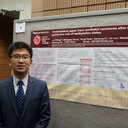Metabolic syndrome and the risk of cholangiocarcinoma: a hospital-based case-control study in China.
Mots clés
Abstrait
UNASSIGNED
Metabolic syndrome is regarded as a risk factor for hepatocellular carcinoma. However, no research has been conducted to investigate the association between metabolic syndrome and cholangiocarcinoma (CCA), especially in the Chinese population. Herein, a hospital-based case-control study was carried out in China to explore the association between metabolic syndrome and CCA risk.
UNASSIGNED
In this study, 303 CCA patients (136 intrahepatic cholangiocarcinoma [ICC] and 167 extrahepatic cholangiocarcinoma [ECC]) were included, who were observed at Peking Union Medical College Hospital (PUMCH), from 2002 to 2014. Healthy controls were randomly selected from the database of PUMPH Health Screening Center. We retrospectively extracted metabolic syndrome and other possible risk factors from clinical records, followed by investigation of the relationship with CCA via calculation of ORs and 95% CIs using logistic regression analysis.
UNASSIGNED
Metabolic syndrome was significantly and positively correlated with all CCA subtypes, with adjusted ORs (AORs) of 0.35 (95% CI =0.29-0.42) and 0.29 (95% CI =0.19-0.44) for ICC and ECC, respectively (both P<0.001). Dyslipoproteinemia harbored a stronger relationship with ICC (OR =3.16; 95% CI =2.12-4.71) than ECC (OR =1.87; 95% CI =1.27-2.77), whereas hypertension harbored a stronger association with ECC (OR =3.09; 95% CI =2.09-4.58) than ICC (OR =2.06; 95% CI =1.32-3.21). Obesity was related to both ICC and ECC, with similar ORs, while diabetes was only related to ICC (OR =4.59; 95% CI =2.78-7.58), but not ECC (OR =0.97; 95% CI =0.49-1.94).
UNASSIGNED
Metabolic syndrome was significantly related to a 1.86-fold elevated CCA risk.



